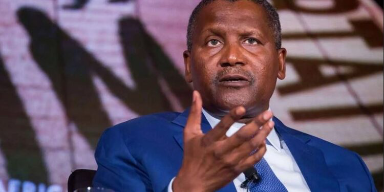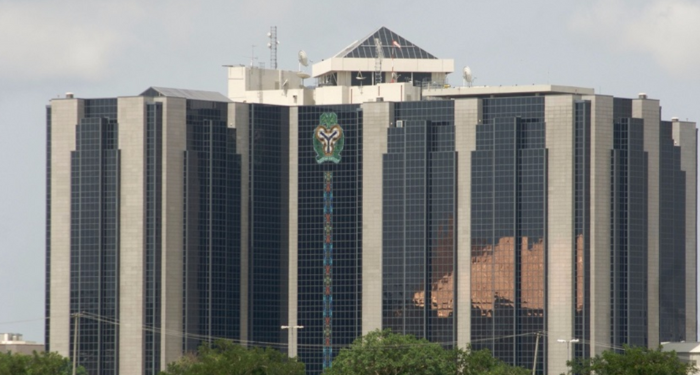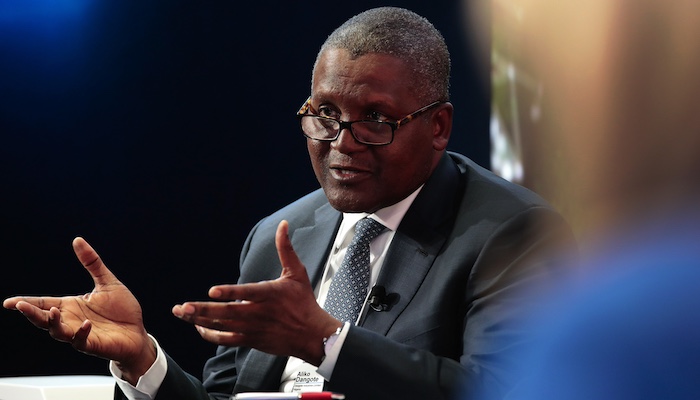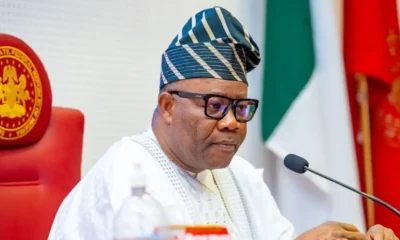Business
Enugu Modern Transport Interchange: Payment of compensation to Holy Ghost property owners begins .

Ahead of the commencement of construction of a new and modern transport Interchange (bus terminal) at Market Road, Enugu (Enugu Central Station), popularly known as Holy Ghost, the leaser of properties at the site will, from Tuesday, start receiving their compensations as agreed with the Nigerian Railway Corporation, the lessor.
The commencement of payment was made known to the Enugu State Commissioner for Transportation, Dr. Obi Ozor, on Monday.
Recall that the Enugu State governor, Dr. Peter Mbah, had, on 19th October, 2023, met with critical property owners and stakeholders on the proposed Enugu Central Station. At the meeting, Mbah had explained that the proposed Enugu Central Station was part of the larger infrastructure plan, which also includes other major modern transport interchanges at Garki, Abakpa Nike, and Nsukka. The aim, he said, was to alleviate the perennial traffic congestion, enhance safety, preserve road assets, optimise transport efficiency, and address various needs of transport sector operators in the state. He, therefore, sought their cooperation towards the realisation of the project.
Citing similar world-class developments in other parts of the world like Dubai, and Singapore, among others, Governor Mbah said there was no reason Holy Ghost bus terminal could be allowed to continue in its present state of decay, perennial traffic congestion, and high-level crimes when such overseas feats could be replicated through conscious efforts and planning.
Sequel to the meeting, the Commissioner for Transportation had on 20th October, 2023 letter formerly notified each individual occupant over a six-month notice of the government’s intention to use the location, while the lessors, the Railway Property Management Company Ltd. equally served the leasers notices of recovery of property to the on 22nd April, 2024 in line with their term of the lease.
In a copy of one of the letters by Railway Property Management Company Ltd. entitled “Notice of Recovery of Railway Land Along Market Road, Enugu”, referenced as T/P. 1794/VOL.1, signed by the Director of Land and Estate Services, A.O Abdulsalam, for the company’s Managing Director, it said the Federal Ministry of Transportation had agreed to release the said portion of Railway land to the Enugu State Government for a modern bus terminal.
The letter reads in part: “We refer to your lease of Railway land along Market Road, Enugu with Ref. No. T/P. 1794/VOL. 1 dated 02/08/2017.
“Please, be informed that the Federal Ministry of Transportation, on behalf of the Federal Government has agreed to release the portion of the NRC land, which was earlier allocated to you as referenced above, to the Enugu State Government to construct a modern transportation hub under the Transport Infrastructure Project.
“In line with our contractual agreement, the Enugu State Government has agreed to compensate you for the structures (s) constructed on the land based on an independent valuation of your structure on the land.
“Therefore, you are kindly requested to provide us with your account details through our Enugu Zonal Manager on or before 26th April 2024 to enable the Enugu State Government to credit your account with the necessary payment.
“Furthermore, as a kind gesture, the Enugu State Government has agreed to do the following: To provide you with an alternative temporary location to ease your business pending when the project is completed; to also give you the right of first refusal to return to the newly completed structure.”
Throwing more light on the development, Enugu State Commissioner for Transportation, said the temporary places had since been allocated to the affected businesses, with some already developing the new place.
“But importantly, I can say with certainty that they will start receiving alerts latest from Tuesday based on the compensation advisory sent to the state government by the Nigerian Railway Property Management Company Ltd. These are huge sums of money, but we have to do it to ameliorate the temporary inconveniences,” Ozor stated.
Meanwhile, at the meeting with Governor Mbah last year, the property and business owners, in addition to legitimate tenants numbering over 29, commended the project.
The event was attended by the owners and representatives of Anaocha South Mass Transit, Chisco Transport Company, Onitsha South Mass Transit, Farm Associates Limited, Dozie Oil Limited, A.C. Decanal Limited, Harco Oil, Pilgrimage Sisters (Osisatech), Okeyson Transport Limited, MDS Logistics Limited, Beach Crushers Association, FCMB, and Ecobank, among others.
Also, during a visit to Mbah in November to better know the project, the Chairman/CEO of Chisco Transport, Chief Chidi Anyaegbu, lauded Governor Mbah for taking responsibility to build such an important transport…
Business
Aliko Dangote Reacts to Reports that Donald Trump Is Unhappy With the Launch Of Dangote Refinery (Video)

Alhaji Aliko Dangote, President of Dangote Refinery, has denied claims that U.S. President Donald Trump is displeased with the launch of the $20 billion refinery.
There were claims on social media suggesting that Trump’s recent threat to attack certain locations in Nigeria could be linked to Africa’s largest refinery.
Trump had threatened to strike terrorists targeting Christians at various locations in Nigeria, which led to the spread of various propaganda and social media reactions.
Addressing the press, Dangote said that the USA has been a major supplier of crude to the refinery, adding that the talk about Trump being angry over its establishment “does not hold water.”
“The US has been one of our major suppliers of crude, which is why when someone says Trump is not happy with our refinery, it’s not true,” he said.
“Trump is more than happy with our refinery, because on average for a year, we do not buy more than 100 million barrels from the US.”
Dangote also said Nigerians now have the option of buying high-quality, locally refined petrol at a cheaper price or opting for blended imported fuel at a higher cost.
Dangote stated that fuel importers could continue to incur losses while Nigerians enjoy more affordable petrol prices.
According to him, the availability of locally refined petrol gives consumers a clear choice between quality fuel sold at a lower rate and blended premium motor spirit (PMS) sold at higher prices by importers.
https://www.instagram.com/reel/DSR-Ew5glpI/?igsh=MWxwYWJxcXhoYm51MQ==
Business
CBN returns to S4 platform for N365 billion T-Bills Auction

The Central Bank of Nigeria (CBN) has reverted to the use of its Scruples Securities Settlement System (S4) for the electronic submission of Treasury Bills auction bids, following a brief suspension after its initial test-run in November.
Ekwutosblog understands the system was suspended following a glitch, which has now been resolved.
The latest move comes ahead of a N365 billion Treasury Bills auction scheduled for Thursday, December 17 – 18, 2025, reinforcing the apex bank’s resolve to tighten controls, enhance transparency and improve price discovery in the primary fixed income market.
The bids are to be submitted on Wednesday, December 17, 2025, while successful bidders will be required to settle their obligations on Thursday, December 18.
Market participants see the decision as a signal that the CBN is pressing ahead with reforms despite earlier operational inconsistencies. According to Mr. Tajudeen Olayinka, CEO of Wyoming Capital Partners, the move signals a renewed push for transparency in primary market auctions as the apex bank advances fixed income reforms.
Auction Details: N365 billion across three tenors
According to auction guidelines issued last weekend, the CBN will offer a total of N365 billion across three short-dated tenors:
- 91-day bills: N100 billion
- 182-day bills: N100 billion
- 364-day bills: N165 billion
The auction will be conducted using the Dutch auction system, with bids to be submitted exclusively via the S4 web interface between 8:00 a.m. and 11:00 a.m. on Wednesday, December 17, 2025.
Each bid must be made in multiples of N1,000, subject to a minimum subscription of N50.001 million, while successful bidders are required to settle by 11:00 a.m. on Thursday, December 18.
Second attempt after November test-run
This December auction marks the second activation of mandatory S4 usage, following the first implementation at the November 20, 2025 Treasury Bills auction, when the CBN raised over N700 billion.
Although the S4 system was briefly suspended in subsequent issuances—where bids were routed through Money Market Dealers (MMDs)—sources close to the apex bank said the pause reflected a work-in-progress transition, not a policy reversal.
Nairametrics gathered that the CBN expects to conclude the reform process before year-end, after which S4 will become fully operational for all government securities.
CBN seeks visibility, not market takeover
Speaking at a Premium Times Academy workshop in Lagos recently, Mr. Zeal Akariwe, CEO of Graeme Blaque Advisory, said the CBN’s objective is real-time visibility, not a takeover of the control of the fixed income market.
“Did CBN take over? No. What the CBN wants is transparency and visibility over the market, not takeover. That visibility did not exist,” Akariwe said.
Akariwe, whose firm provides advisory services to CBN, stressed that the Securities and Exchange Commission (SEC) remains the statutory regulator, while the CBN’s actions are corrective measures to address structural weaknesses in the market.
Why transparency matters to CBN
Akariwe highlighted how loopholes in the old system enabled profit concealment. He cited cases where banks and pension funds routed bond trades through brokers to hide gains from regulators.
In one illustration, Akariwe said a pension fund holding a 10% coupon bond bought at N100 could sell via an intermediary at N120, allowing the N20 profit to be shared discreetly among parties without regulatory visibility. “The CBN says we can’t have this where we cannot see it,” he noted.
Concerns had earlier emerged over inconsistent use of issuance platforms, with some auctions conducted via S4 and others through MMDs. Akariwe acknowledged this but described it as part of a transition phase.
Beyond auctions, the S4 rollout aligns with Governor Olayemi Cardoso’s broader reform agenda, spanning financial markets, banking supervision, compliance, and FX reforms, aimed at embedding transparency-driven systems that outlast the current administration.
With the return to S4 for the December auction, the CBN appears set to make electronic bidding the new normal in Nigeria’s government securities market.
Business
Dangote demands probe of NMDPRA Chief over alleged economic sabotage

President and Chief Executive Officer of Dangote Industries Limited, Aliko Dangote, has urged the Federal Government to investigate and prosecute the Chief Executive Officer of the Nigerian Midstream and Downstream Petroleum Regulatory Authority, NMDPRA, Engr. Farouk Ahmed, over allegations of economic sabotage and actions he claims are undermining domestic refining in Nigeria.
Dangote made the call while addressing journalists at the Dangote Petroleum Refinery, where he accused the leadership of the NMDPRA of working in concert with international oil traders and fuel importers to frustrate local refining efforts.
He alleged that the continuous approval of import licenses for petroleum products was deliberately weakening Nigeria’s refining capacity.
The industrialist also claimed that the NMDPRA chief was living beyond his legitimate income, further raising concerns about the integrity of regulatory oversight in the downstream petroleum sector.
Despite his criticisms, Dangote reassured Nigerians that petrol prices would continue to decline, announcing that the pump price of Premium Motor Spirit, PMS, would not exceed N740 per liter from Tuesday, beginning in Lagos.
He explained that the reduction follows the refinery’s decision to cut its gantry price to N699 per litre, with MRS filling stations expected to be the first to reflect the new pricing.
Dangote expressed deep concern over the structure of Nigeria’s downstream petroleum industry, warning that the country’s continued dependence on imported fuel was stifling local production and discouraging investment in domestic refining.
He revealed that import licenses amounting to about 7.5 billion liters of PMS had reportedly been approved for the first quarter of 2026, despite the existence of substantial local refining capacity.
According to him, the policy environment has placed modular refineries under severe pressure, pushing many to the verge of collapse.
“I am not asking for his removal, but for a transparent investigation. He should be made to explain his actions and prove that his office has not been compromised.
“What we are witnessing amounts to economic sabotage,” Dangote said, adding that agencies such as the Code of Conduct Bureau could be tasked with conducting the probe.
He further described the downstream sector as being dominated by powerful interests that profit from fuel imports at the expense of national development.
Dangote lamented that many African countries, including Nigeria, continue to rely on imported refined products despite longstanding calls for value addition and local refining.
According to him, the volume of fuel imports being permitted into the country is unethical and undermines Nigeria’s economic interests.
Dangote stressed the importance of clearly separating regulatory responsibilities from commercial activities, warning that allowing traders to influence regulatory decisions would erode confidence in the sector.
“The downstream industry must not be sacrificed to personal interests. A trader should never act as a regulator. Dozens of licences have been issued, yet no new refineries are emerging because the operating environment is hostile,” he said.
He maintained that Nigerians stand to benefit significantly from local refining, even as fuel importers bear losses.
Dangote reaffirmed his commitment to ensuring that citizens enjoy the full benefits of domestic refining, noting that the company is working tirelessly to ensure that recent gantry price reductions translate to lower pump prices nationwide.
From Tuesday, he said, MRS filling stations in Lagos would commence the sale of PMS at prices not exceeding N740 per litre.
He also disclosed that the refinery has reduced its minimum purchase requirement from two million litres to 500,000 litres, enabling more marketers, including members of the Independent Petroleum Marketers Association of Nigeria, IPMAN, to access products directly.
“So, any marketer coming to the refinery today can lift PMS at N699 per litre,” Dangote added.
-
Business1 year ago
US court acquits Air Peace boss, slams Mayfield $4000 fine
-

 Trending1 year ago
Trending1 year agoNYA demands release of ‘abducted’ Imo chairman, preaches good governance
-

 Politics1 year ago
Politics1 year agoMexico’s new president causes concern just weeks before the US elections
-

 Politics1 year ago
Politics1 year agoPutin invites 20 world leaders
-

 Politics1 year ago
Politics1 year agoRussia bans imports of agro-products from Kazakhstan after refusal to join BRICS
-
Entertainment1 year ago
Bobrisky falls ill in police custody, rushed to hospital
-
Entertainment1 year ago
Bobrisky transferred from Immigration to FCID, spends night behind bars
-
Education1 year ago
GOVERNOR FUBARA APPOINTS COUNCIL MEMBERS FOR KEN SARO-WIWA POLYTECHNIC BORI












